Cytokine Release Syndrome Car-t
Cytokine release syndrome car-t. Although chimeric antigen receptor CAR T cell therapies have demonstrated considerable success in treating hematologic malignancies they have simultaneously been plagued by a cytokine release. CAR T therapy carries the risk of inflammatory toxicities such as cytokine release syndrome CRS and immune effector cellassociated neurotoxicity syndrome ICANS which are challenging to manage given the persistence of CAR T and the inability to easily reverse the resultant immune activation. On the current evidence we give practical guidance to the management of the cytokine release syndrome.
CRS is the most common type of toxicity caused by CAR T cells. This algorithm has been developed for MD Anderson using a multidisciplinary approach considering circumstances particular to MD Andersons specific patient population services and structure and clinical information. CRS is a serious life-threatening side effect caused by a large and quick release of cytokines a type of protein into the blood.
This phenomenon causes multisystem damages and sometimes even death. Learn more about CRS symptoms. 35 - 37 40 Activation of bystander immune cells such as monocytesmacrophages dendritic cells.
The activation leads to proliferation of CAR T cells and release of cytokines and chemokines from antigen-redirected T cells including IL-6 soluble IL-6 receptor soluble IL-2 receptor a interferon gamma IFN-γ and granulocyte-macrophase colony-stimulating factor. Cytokine release syndrome is the most common side effect associated with this treatment and it is characterized by high fevers hypertension hypoxia and multi-organ damage. Cytokine release syndrome CRS a systemic inflammatory response caused by cytokines released by infused CAR T cells can lead to widespread reversible organ dysfunction.
However the accompanying adverse events the most common of which is. For questions about BMS medicines during this time please call 1-800-721-8909. In childhood cancer immunotherapies most often associated with CRS include blinatumomab and tisagnlecleucel.
Chimeric antigen receptor T CAR T cell therapy has demonstrated efficacy in the treatment of haematologic malignancies. To date clinical trials of different CAR-T products have not been aligned on CRS grading scales and management algorithms. This syndrome is a systemic immune storm that involves the mass cytokines releasing by activated immune cells.
Although CAR T-cell therapy is very impressive and produces extraordinary results it is also very potent in terms of the unique toxicities it produces. Cytokine release syndrome Immunotherapy CAR T cells T cell-engaging therapies Cytokine storm Background Cytokine release syndrome CRS is a systemic inflam-matory response that can be triggered by a variety of fac-tors such as.
Cytokine release syndrome Immunotherapy CAR T cells T cell-engaging therapies Cytokine storm Background Cytokine release syndrome CRS is a systemic inflam-matory response that can be triggered by a variety of fac-tors such as.
Cytokine release syndrome occurs after treatment with immunotherapy that activates T cells to fight cancer. Cytokine release syndrome is the most common side effect associated with this treatment and it is characterized by high fevers hypertension hypoxia and multi-organ damage. This algorithm has been developed for MD Anderson using a multidisciplinary approach considering circumstances particular to MD Andersons specific patient population services and structure and clinical information. In childhood cancer immunotherapies most often associated with CRS include blinatumomab and tisagnlecleucel. CRS cytokine release syndrome Page 1 of 28 Disclaimer. Although chimeric antigen receptor CAR T cell therapies have demonstrated considerable success in treating hematologic malignancies they have simultaneously been plagued by a cytokine release. Although CAR T-cell therapy is very impressive and produces extraordinary results it is also very potent in terms of the unique toxicities it produces. Cytokine release syndrome CRS is an acute systemic inflammatory syndrome characterized by fever and multiple organ dysfunction that is associated with chimeric antigen receptor CAR-T cell therapy therapeutic antibodies and haploidentical allogeneic transplantation. CAR T therapy carries the risk of inflammatory toxicities such as cytokine release syndrome CRS and immune effector cellassociated neurotoxicity syndrome ICANS which are challenging to manage given the persistence of CAR T and the inability to easily reverse the resultant immune activation.
Although chimeric antigen receptor CAR T cell therapies have demonstrated considerable success in treating hematologic malignancies they have simultaneously been plagued by a cytokine release. CAR T therapy carries the risk of inflammatory toxicities such as cytokine release syndrome CRS and immune effector cellassociated neurotoxicity syndrome ICANS which are challenging to manage given the persistence of CAR T and the inability to easily reverse the resultant immune activation. For questions about BMS medicines during this time please call 1-800-721-8909. This syndrome is a systemic immune storm that involves the mass cytokines releasing by activated immune cells. Cytokine release syndrome CRS is an acute systemic inflammatory syndrome characterized by fever and multiple organ dysfunction that is associated with chimeric antigen receptor CAR-T cell therapy therapeutic antibodies and haploidentical allogeneic transplantation. Cytokine release syndrome occurs after treatment with immunotherapy that activates T cells to fight cancer. CRS cytokine release syndrome Page 1 of 28 Disclaimer.


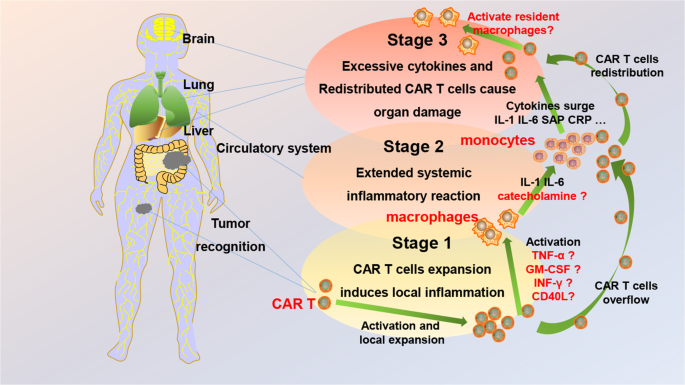

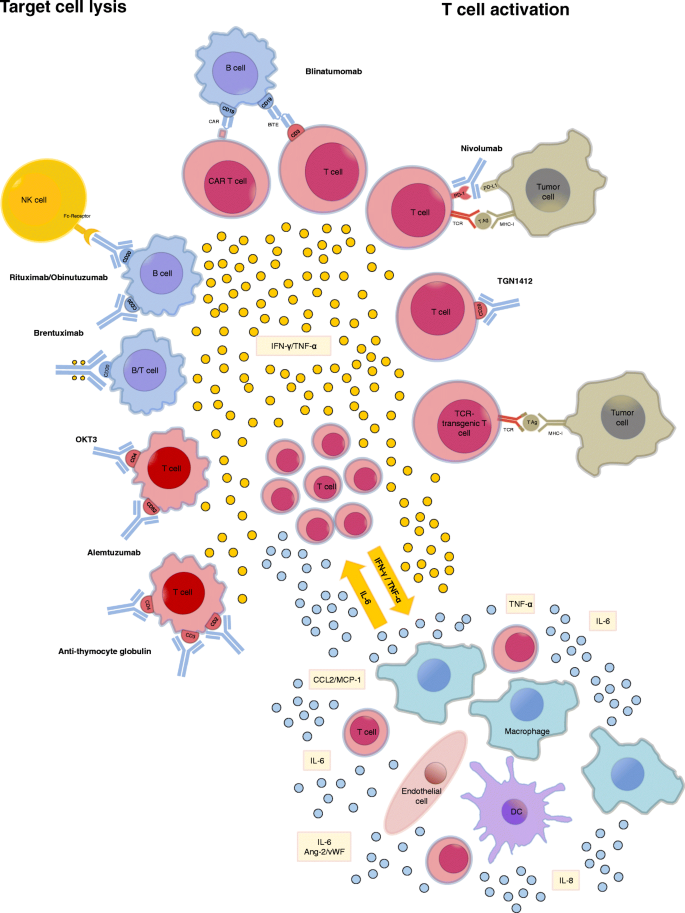
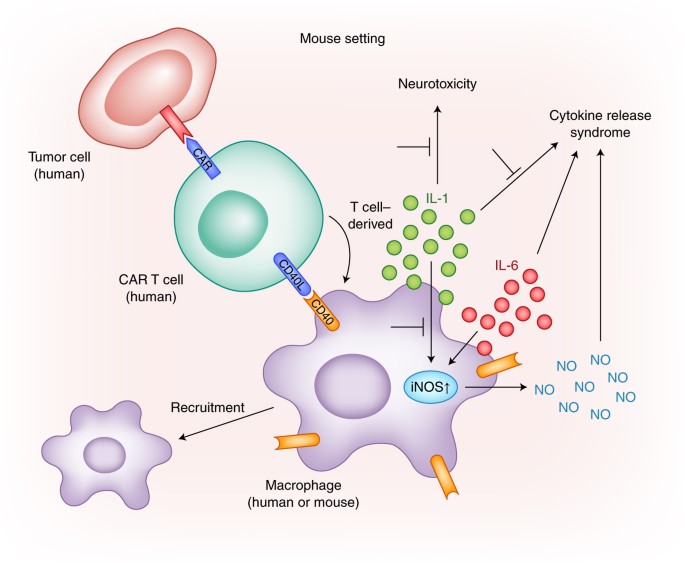




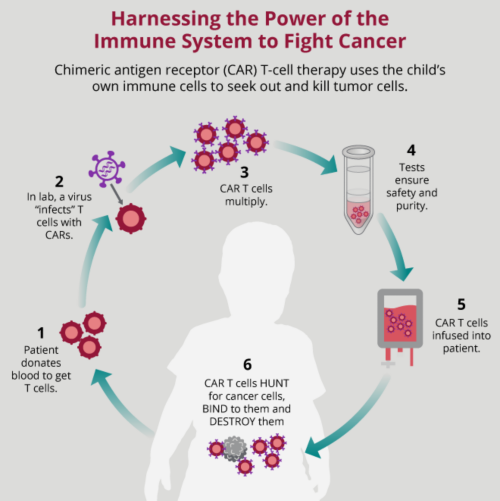
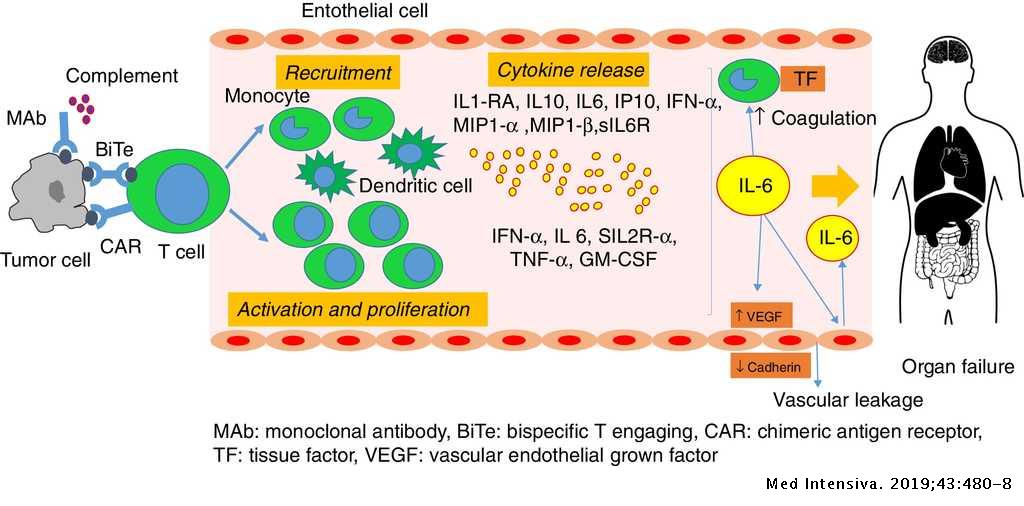

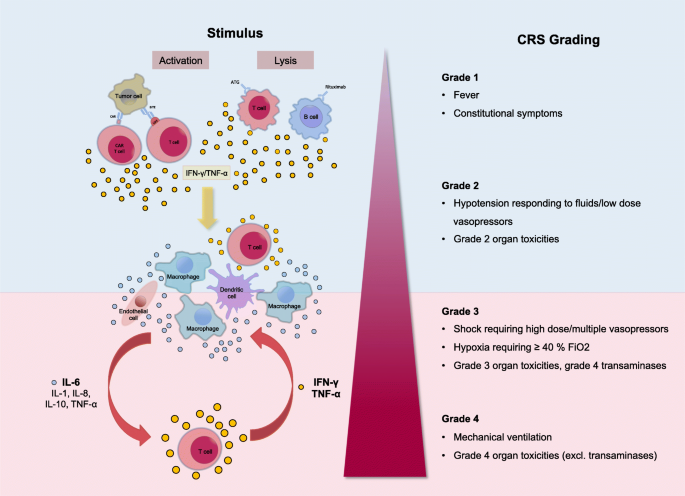

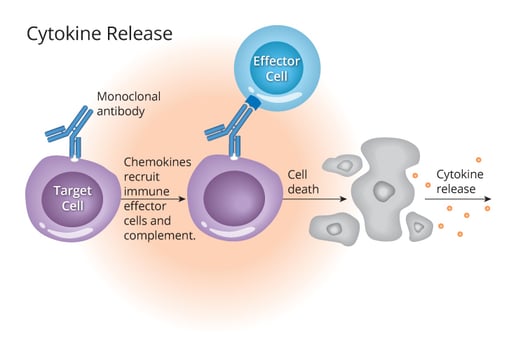




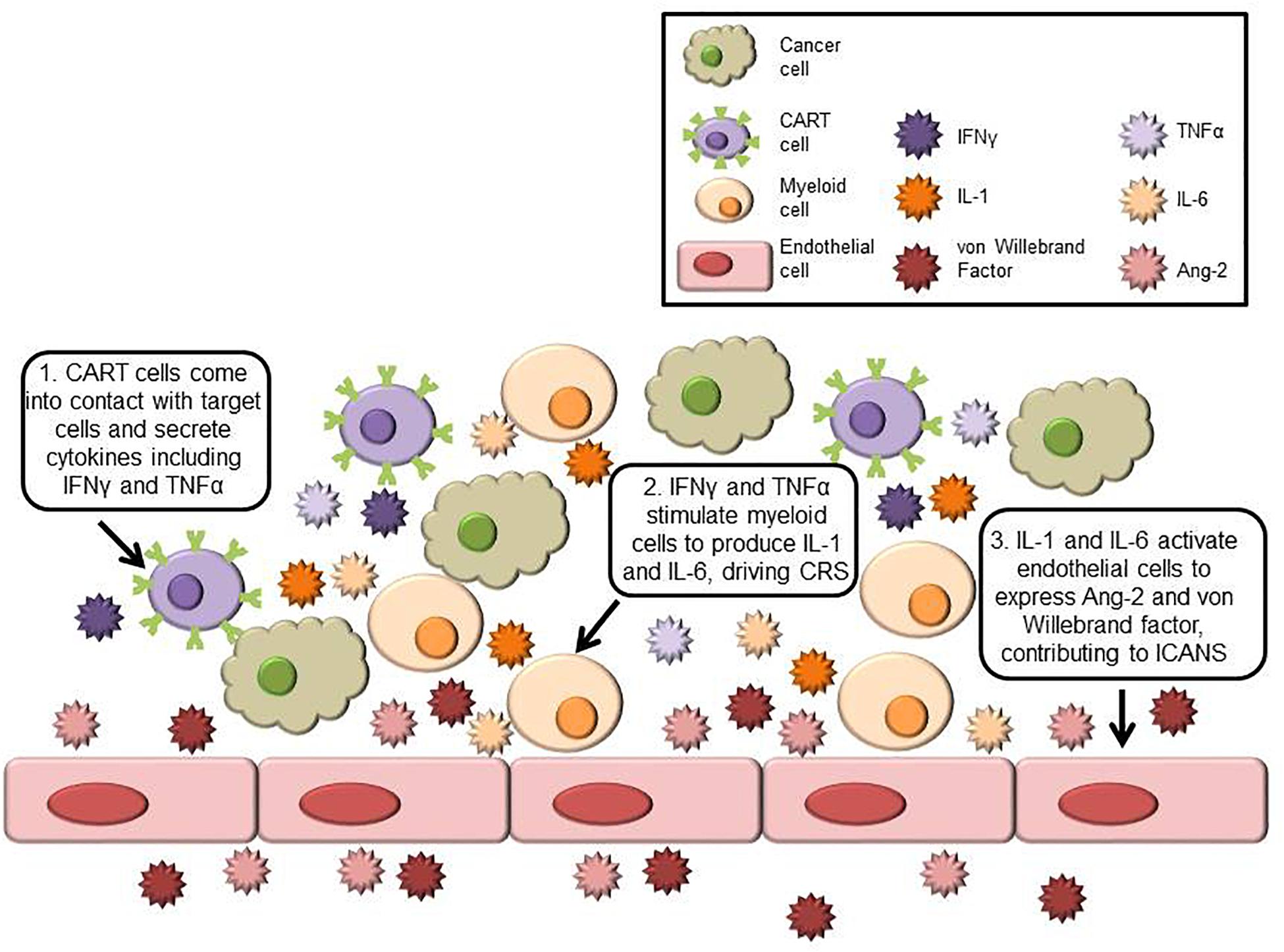
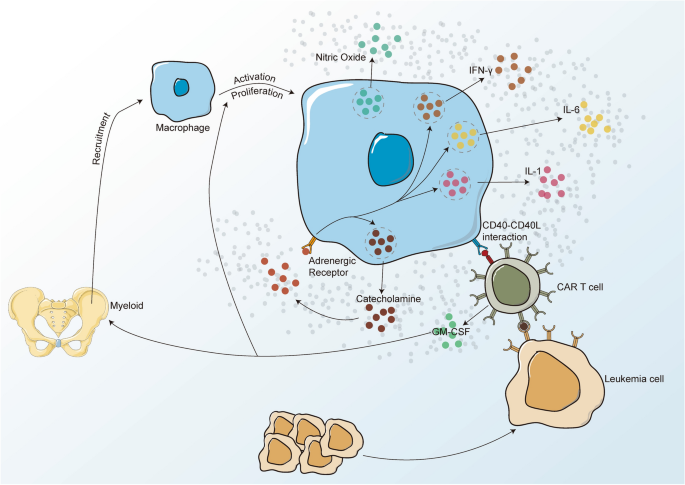

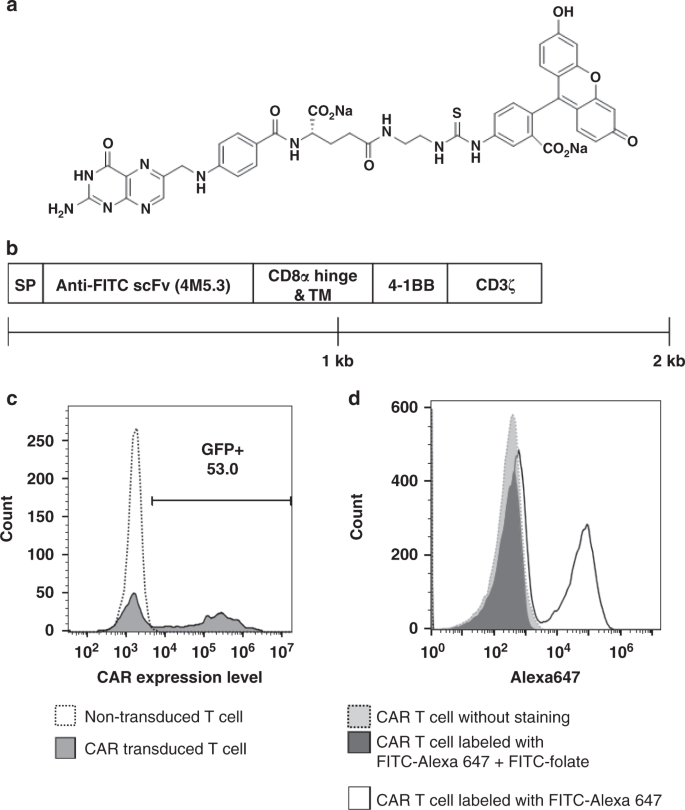
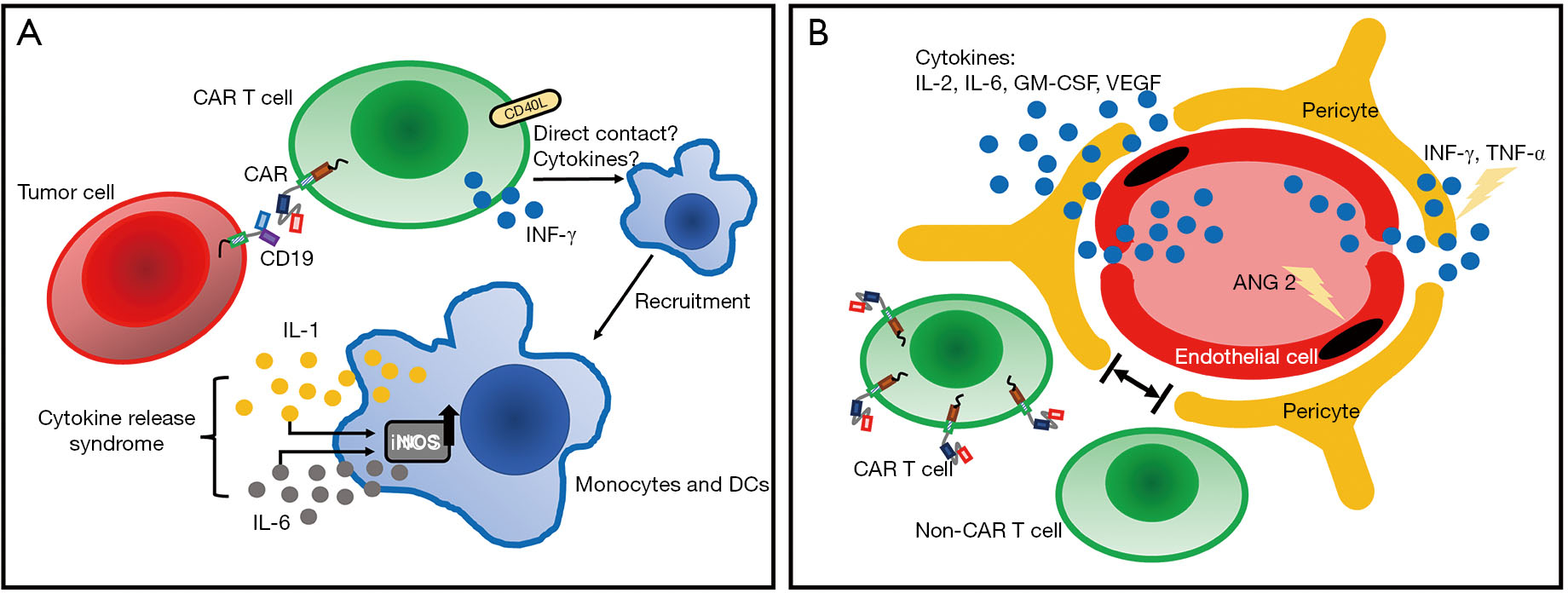

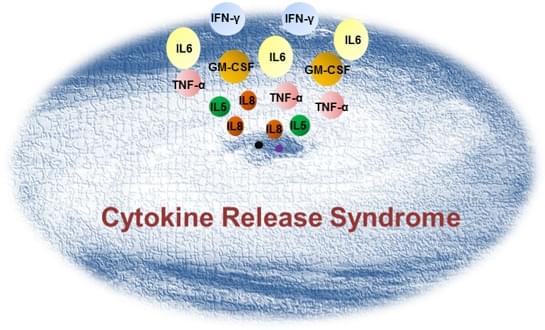





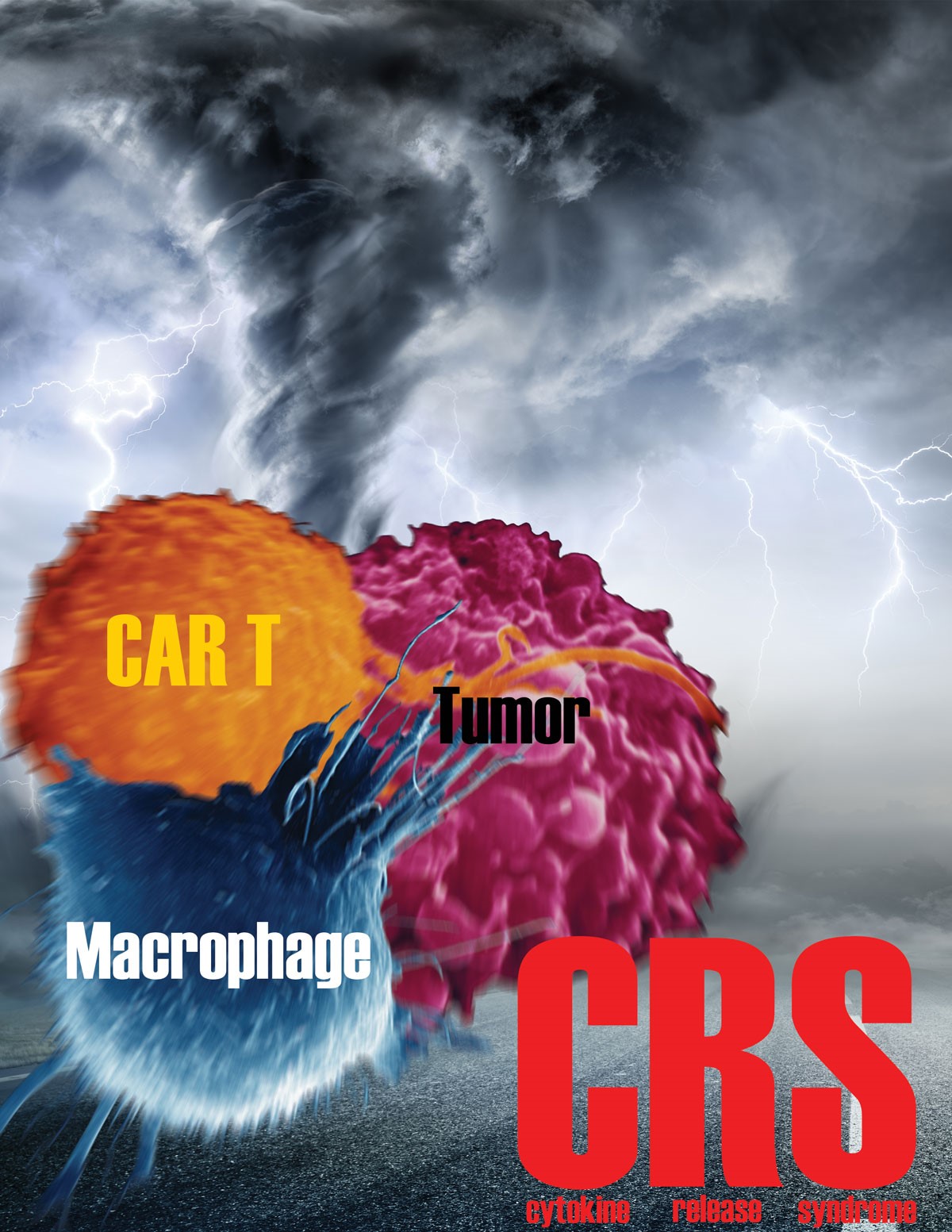



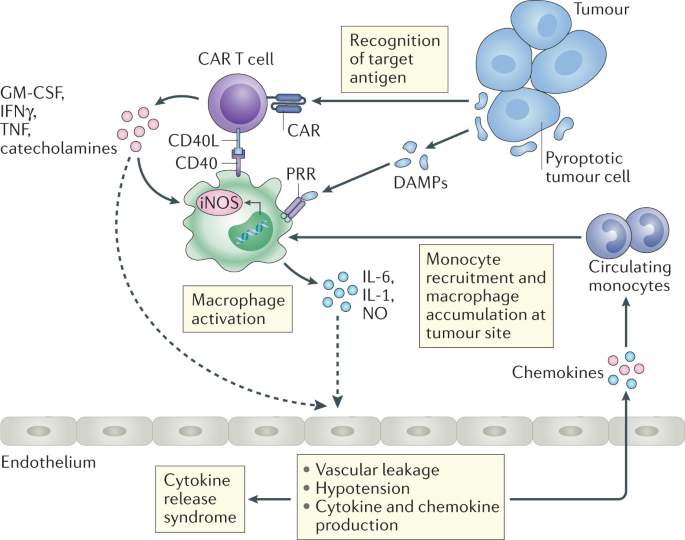

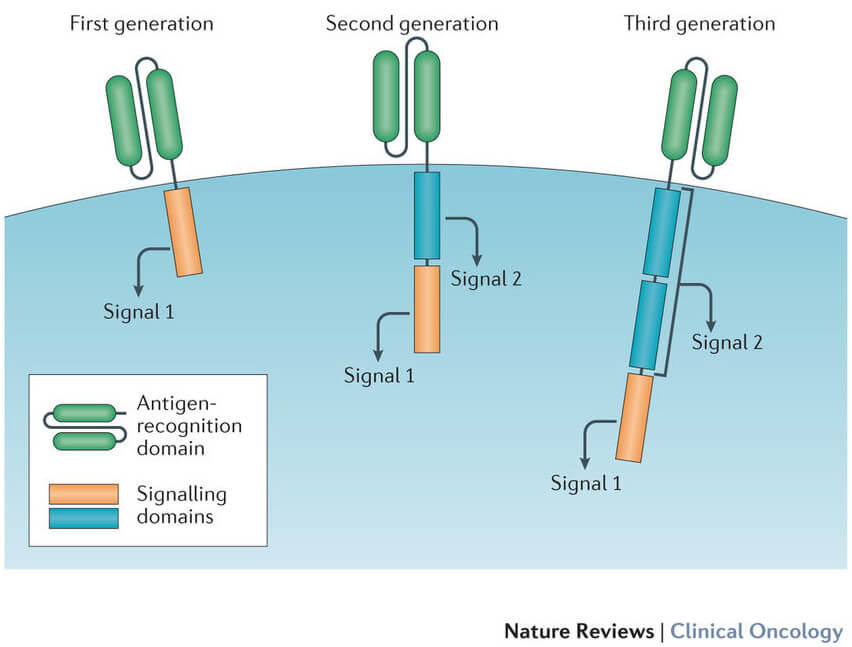
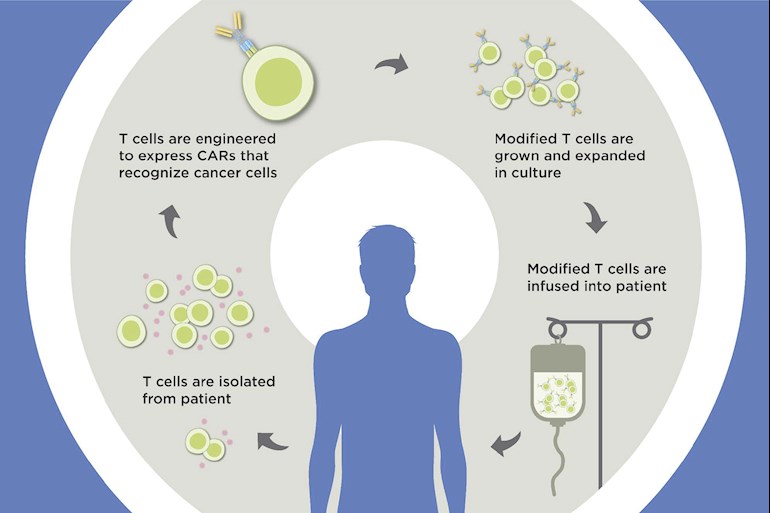
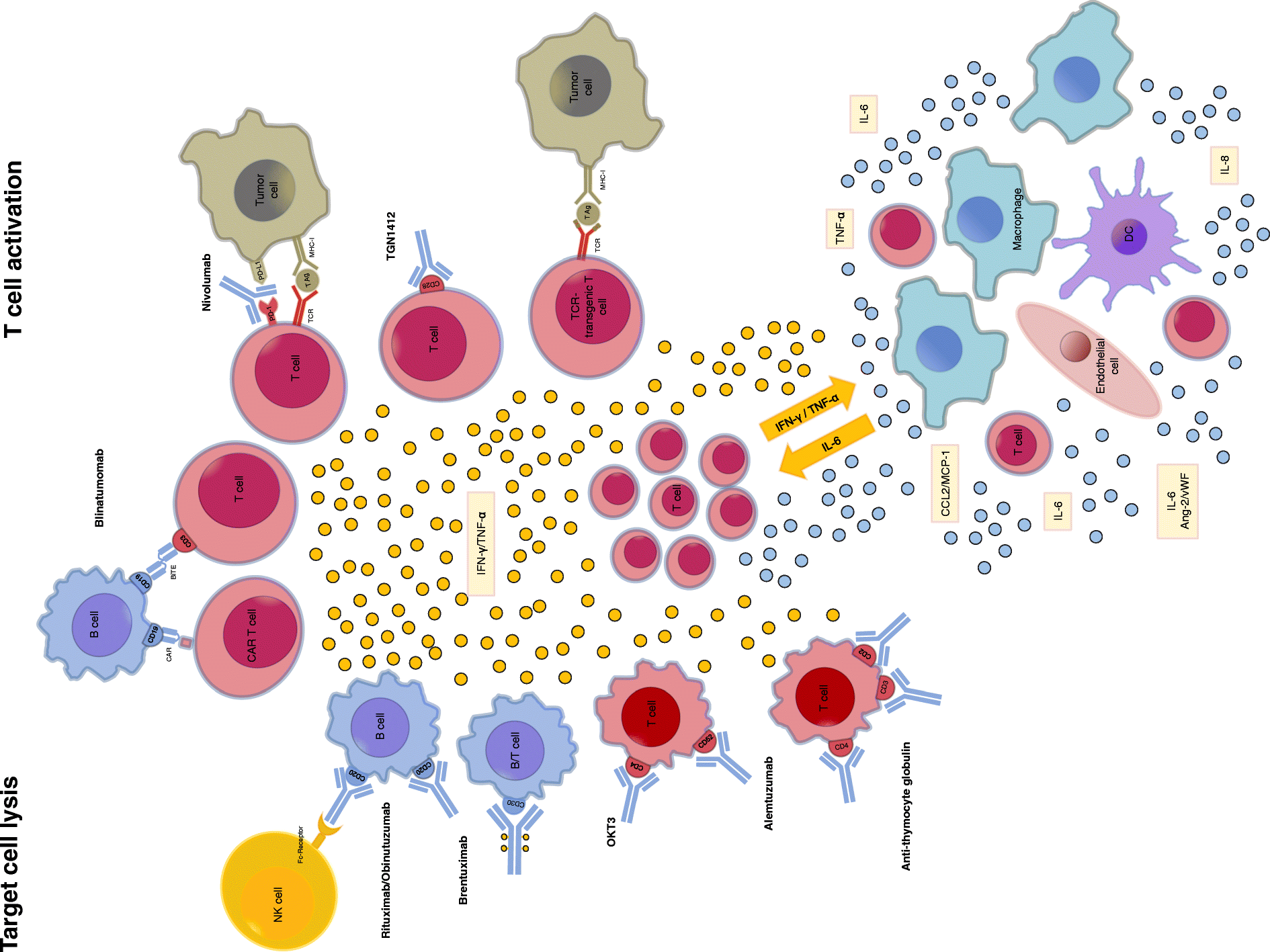


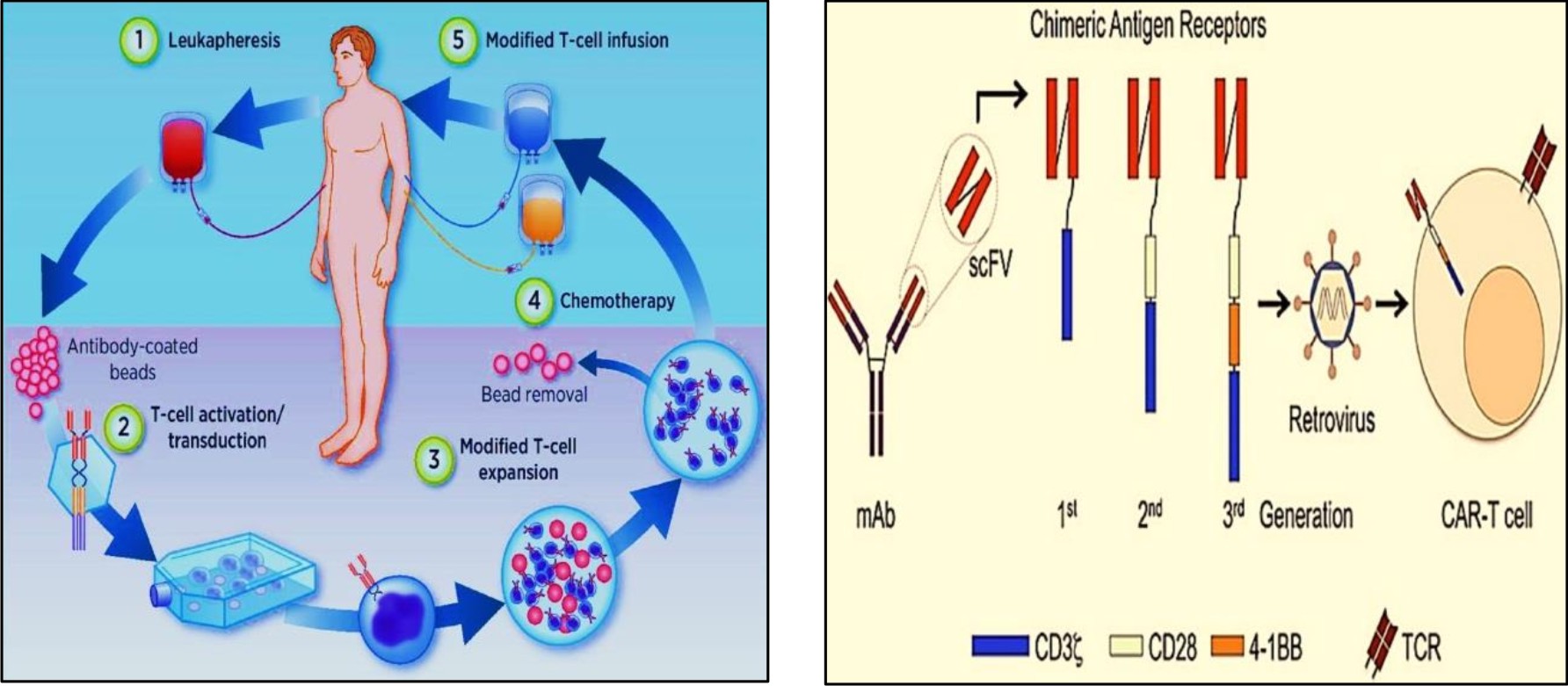

Post a Comment for "Cytokine Release Syndrome Car-t"